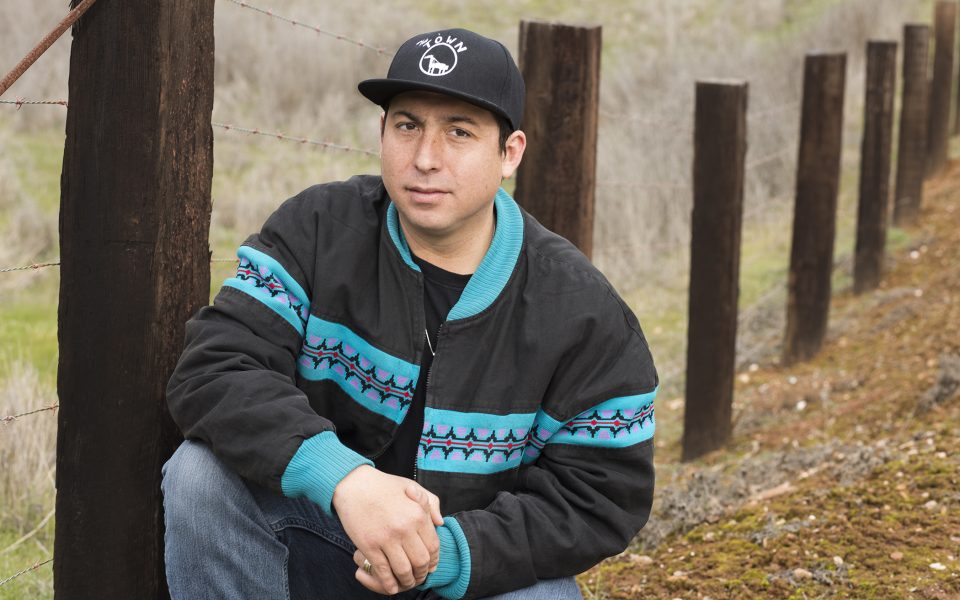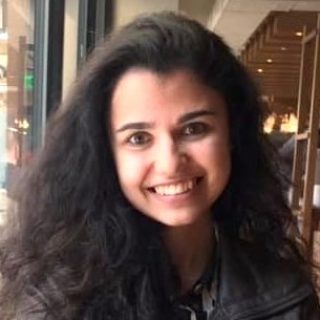Author Tommy Orange will be in Greensboro this Thursday. Photo courtesy of Elena Seibert.
There, There author Tommy Orange is coming to Greensboro on Thursday as part of the One City One Book program, in which people from a city are encouraged to read the same book. Orange is a member of the Cheyenne and Arapaho Tribes and writes about the problems that face urban Native communities. His 2018 novel centers around one community of Indigenous Americans in and around Oakland, CA. This is his first time back in North Carolina since 2019, when he visited for another book-related event.
The event will take place at the Greensboro Coliseum from 7-8:30 p.m. and is free to the public.
What have book events been like for you since COVID?
It’s been Zoom almost entirely. I had one in San Francisco with a K-12 school and one in Wisconsin. It’s been really nice to see people again. My son is getting fully vaccinated in December, so there was a little more trepidation before.
I did a lot of book events before the pandemic and I got a little burnt out on them, but it’s great to do them again. In person, you get to meet people and you can feel a crowd when you’re in front of them. On Zoom, it’s just silence. That’s the biggest difference, and it’s refreshing to be back.
Ray Silva is to play music at the Greensboro event before you speak. Is it important to you to work with other Indigenous creatives and highlight their voices?
I love when I have events where other artists are featured, and one of the biggest hopes I’ve had for the book since it’s become successful is that the door will be open for other Native authors. That’s a huge accomplishment for me, that my success allows other people’s successes. When I get to be with other Native artists and authors, I love that.
There, There specifically centers urban Native communities. Is it important for you to tell urban stories vs. rural stories?
It’s the story of where I come from. I was born and raised in Oakland, and I wanted to write a story about this community. There’s a lack of that story being told, and there’s a lot of emphasis on rural and even more so historical narratives. I wanted to resist the idea that we only exist in the past. The novel that I wrote is the one I wanted to write, but it also resists the historical narrative.
Who are some of your biggest literary influences?
Toni Morrison right now, and Louise Erdrich. She just won the Pulitzer and her new book is amazing. I read every Toni Morrison novel during the pandemic, except for Tar Baby, which I’m still getting to. She has made a big impact. I was aware of her before, but reading all of her work has changed me as a writer.
Can you tell us anything about your next book?
It’s a sequel to There, There that’s turned into a kind of prequel. It follows some of the characters from There, There and how they do or do not recover from what happens at the end. I’m trying to write a book that doesn’t come across as a sequel, that anyone can jump into. I’m turning in the next draft next month, so I’m working hard at that.
Join the First Amendment Society, a membership that goes directly to funding TCB‘s newsroom.
We believe that reporting can save the world.
The TCB First Amendment Society recognizes the vital role of a free, unfettered press with a bundling of local experiences designed to build community, and unique engagements with our newsroom that will help you understand, and shape, local journalism’s critical role in uplifting the people in our cities.
All revenue goes directly into the newsroom as reporters’ salaries and freelance commissions.


Leave a Reply